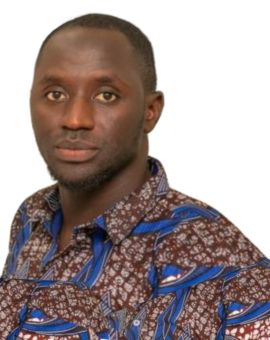Journalists and Press Editors trained on conflict-sensitive media coverage on the Truth Reconciliation and Reparation Commission’s Report

The International Institute for Democracy and Electoral Assistance (IDEA), in partnership with the Gambia Press Union (GPU) and with support from the European Union, conducted a two-day capacity-building workshop on December 2-3, 2024. This event trained 30 press editors and journalists on conflict-sensitive media coverage related to the government’s implementation of the White Paper on the Truth, Reconciliation, and Reparations Commission (TRRC) report. The initiative aimed to equip journalists with the essential knowledge and skills needed to effectively report on transitional justice processes.
Participants examined strategies for ethical reporting that prioritize privacy and consent, minimize harm, avoid stigmatization, ensure accuracy, and use sensitive language. They also focused on protecting the identities of vulnerable victims. The training highlighted the importance of humanizing stories and emphasizing the support systems available to victims.
Jainaba Faye, Head of the International IDEA Country Office, underscored the critical role of journalists in reporting on conflict-sensitive issues, particularly those involving victims of crime or human rights violations.
“Victim and conflict-sensitive reporting requires treating victims with dignity, respect, and compassion. Journalists must recognize the humanity of those affected and understand the potential psychological, emotional, and social consequences of media exposure,” she noted.
She emphasized that careful and sensitive reporting can contribute to building societies united through dialogue and empathy, rather than divided by conflict.
Enya Braun, representing the European Union Ambassador, emphasized the crucial role of the media in the transitional justice process. She described the media not only as a source of information but also as a powerful agent of change. Ms. Braun highlighted how journalists could shape narratives that promote understanding, hold institutions accountable, and protect the rights of victims and communities.
“The EU remains steadfast in its commitment to supporting The Gambia’s democratic transition, which is rooted in truth, accountability, and reconciliation. Our partnership with the Gambia Press Union under the CODE project, implemented by International IDEA, reflects a shared vision for a peaceful and inclusive Gambia,” Braun added.
Muhammad Bah, the President of the GPU, emphasized the responsibility of journalists in supporting the implementation of the TRRC’s White Paper recommendations. He highlighted the crucial role of the media in promoting healing, accountability, and reconciliation. Mr. Bah urged journalists to steer clear of sensationalism and divisive narratives.
“As journalists, we must ensure that our stories foster unity and understanding rather than intensify divisions. Editorial independence should not come at the expense of amplifying voices that undermine the rights of women and marginalized children,” Bah cautioned.
He also expressed gratitude to the European Union and International IDEA for their continued support in strengthening the media’s capacity to contribute to The Gambia’s journey toward justice, reconciliation, and reparation.
Highlighting the impact of the training, one of the participants Mr. Essa Bah of West Coast Radio, described the training as “essential,” noting that it enhanced his understanding of reparation, reconciliation, and the TRRC’s findings. He expressed a commitment to applying the knowledge and skills acquired in his reporting, with a focus on safeguarding the psychological and emotional well-being of victims.
The training sessions covered various topics, including a thorough exploration of the TRRC recommendations and the government’s White Paper, updates on implementation progress, ethical responsibilities in reporting, storytelling techniques, and case studies on framing conflict-sensitive narratives.
This initiative, as part of the EU-funded CODE project outcome, demonstrates International IDEA's commitment to empowering journalists as key stakeholders in The Gambia’s transitional justice process. It aims to build their capacities to ensure that the media contributes positively to the country's efforts toward accountability, healing, and reconciliation.




